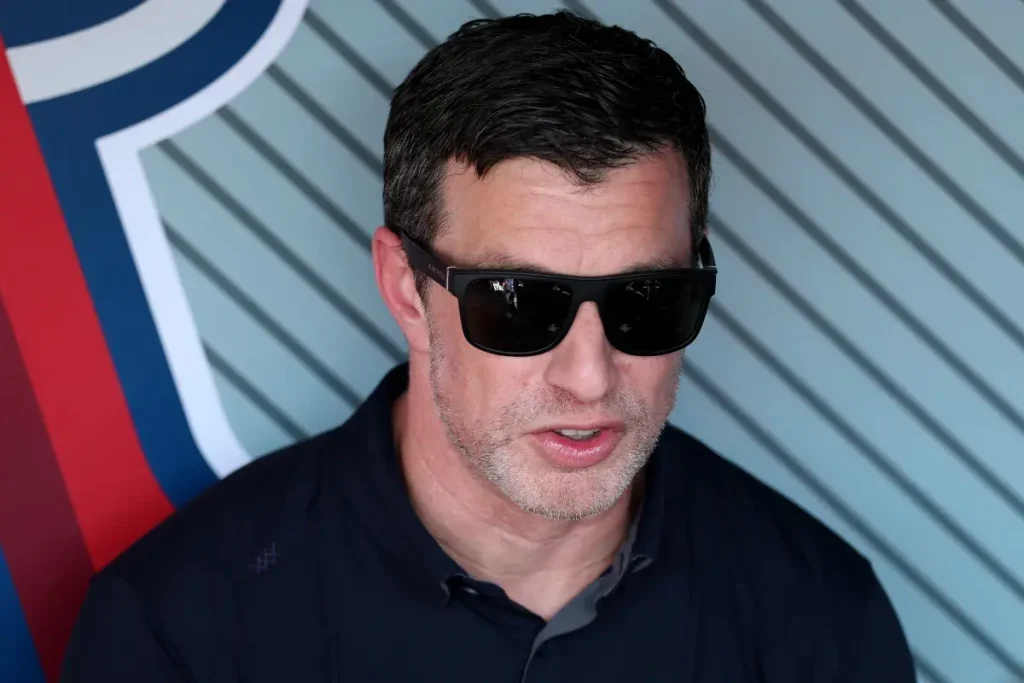Dodgers’ Friedman Responds to “Ruining Baseball” Criticism Over High Payroll
In response to ongoing criticism that the Los Angeles Dodgers are “ruining baseball” with their massive $350 million payroll, team President of Baseball Operations Andrew Friedman has defended the organization’s spending strategy as being fundamentally about serving their passionate fan base. As the Dodgers compete in another World Series, the debate around competitive balance in Major League Baseball has intensified, with the team’s unprecedented investment in player talent becoming a flashpoint for discussions about financial disparity in the sport. Despite having the highest payroll in baseball by a significant margin, Friedman frames these expenditures not as an unfair advantage but as a commitment to delivering quality baseball to devoted Dodgers supporters.
“For us, it is all about our incredible fans and us giving back,” Friedman explained, reflecting on his eleven seasons with the organization. He highlighted the remarkable dedication of Dodgers fans, noting their consistent presence even during away games and the profound connection they maintain with the team. “Our job is to pour ourselves back into it and try to give them a team that can compete for championships, and that they can be proud of,” he continued, emphasizing that this fan-centered approach drives their decision-making rather than external criticisms about their spending practices. In Friedman’s view, the substantial financial investments represent a reciprocal relationship between the organization and its supporters – a partnership built on delivering competitive baseball and championship opportunities.
The controversy stems from the Dodgers’ aggressive moves following their 2023 World Series victory, when the front office embarked on what many characterized as a free agent “spending spree” designed to build a dynasty. Critics argue that such financial flexing undermines competitive balance in baseball, creating an uneven playing field where smaller-market teams cannot possibly compete with the resources available to Los Angeles. The criticism has only intensified as the team has again reached baseball’s biggest stage, fueling the narrative that championships can simply be purchased rather than earned through strategic development and careful team building. This perception has made the Dodgers something of a villain in baseball circles, despite the organization’s insistence that they’re simply maximizing their market advantages to benefit their fans.
Friedman, however, remains unmoved by these criticisms, maintaining that the organization’s focus remains squarely on building sustained success. “Everything for us is about pouring back into our fans and that partnership that we have with them,” he stated, adding, “Anything else that comes from it – and obviously, I’ve heard a lot of it – it’s just not front of mind for us because everything is around how do we put ourselves in the best position to win now and also to win in the future.” This dual emphasis on present competitiveness and long-term sustainability suggests that the Dodgers see their approach as more nuanced than critics acknowledge, balancing immediate championship aspirations with broader organizational health.
Interestingly, the Dodgers’ experience this season has actually demonstrated the limitations of relying solely on financial might to guarantee success. Many of their high-profile free agent acquisitions have been sidelined by injuries or have underperformed expectations, forcing the team to adapt rather than simply ride the wave of their expensive roster to easy victories. This reality check offers a compelling counterargument to the “buying championships” narrative – while money certainly provides advantages in acquiring talent, it cannot eliminate the fundamental uncertainties of baseball performance, the impact of injuries, or the need for effective team chemistry and management. The 2024 season has proven that even the wealthiest teams must overcome significant challenges to compete at the highest level.
The contrast between teams like the Dodgers and the Milwaukee Brewers – who secured the best record in the National League despite operating with a significantly lower payroll – further illustrates this complexity. Similarly, the New York Mets failed to reach the postseason despite rivaling the Dodgers in payroll expenditures. These outcomes suggest that while financial resources create opportunities, baseball success remains contingent on numerous factors beyond simply outspending competitors. As the Dodgers continue their World Series campaign amid ongoing debates about competitive balance in baseball, Friedman’s perspective highlights a tension at the heart of professional sports: balancing the responsibilities teams have to their specific fan bases with broader concerns about maintaining a competitive and engaging league-wide product. For the Dodgers, at least, serving their passionate fans remains the primary consideration guiding their approach, regardless of the external criticism it may generate.


